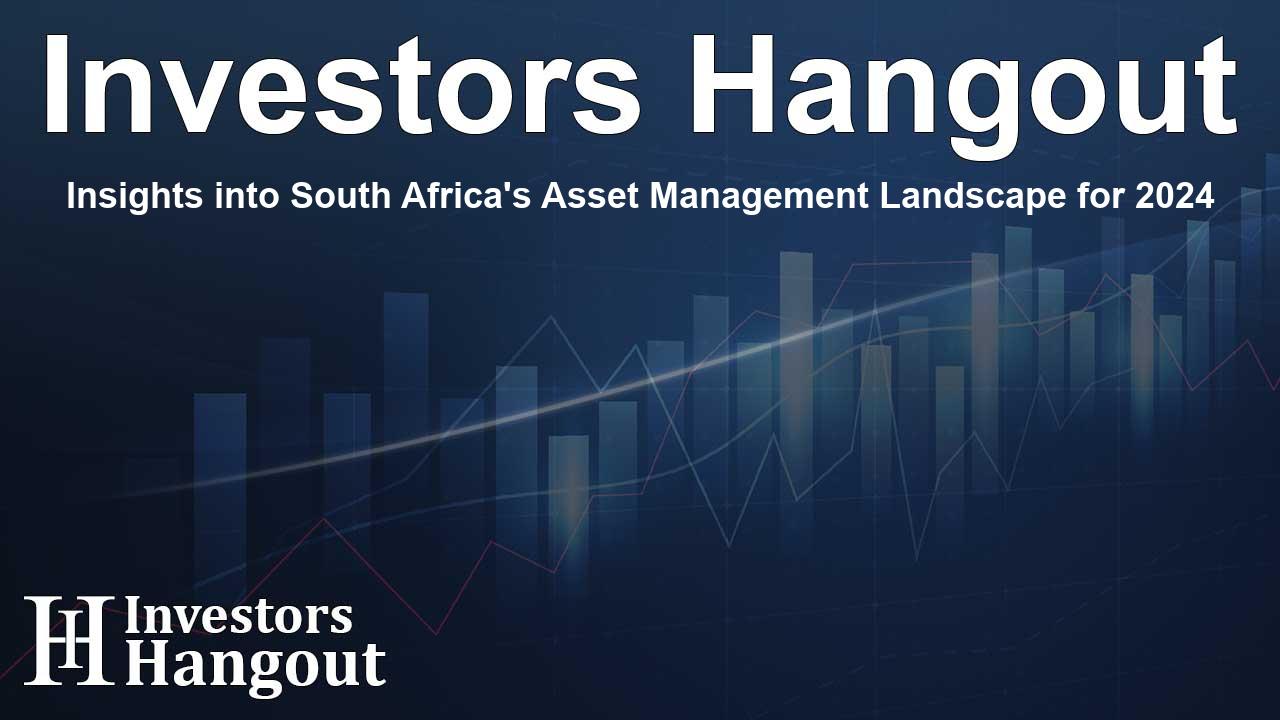Insights into South Africa's Asset Management Landscape for 2024

Understanding the Asset Management Industry in South Africa
The asset management sector in South Africa is undergoing significant transformation. Various factors are impacting its growth, and a recent report provides an in-depth look at these changes. This sector has been notably affected by economic fluctuations and evolving regulations, creating both challenges and opportunities. Understanding this dynamic landscape is crucial for stakeholders involved in investment management.
Current State and Industry Overview
The asset management industry in South Africa is a vital component of the financial sector, managing retirement fund assets and private investments. It encompasses a diverse range of players, from large entities like the Public Investment Corporation to smaller boutique asset managers. The total assets under management have seen considerable growth despite facing challenges such as economic downturns and political uncertainties.
Economic Environment and Key Players
Various elements define the economic environment in which the asset management industry operates. Economic growth has been sluggish, impacting consumer confidence and investment decisions. Notable players continue to adapt to these conditions, focusing on attracting and retaining investment. Companies such as Allan Gray and Old Mutual Investment Group are among those leading in this sector, effectively navigating through these challenging conditions.
Emerging Trends Shaping the Future
Several trends are shaping the future of the asset management landscape in South Africa. The use of artificial intelligence is revolutionizing operational efficiencies, while there's an increasing focus on responsible investment practices. Asset managers are broadening their portfolios to include alternative investments like private equity and hedge funds, responding to shifting investor preferences.
Challenges Facing the Industry
Despite the growth potential, the industry faces several challenges. High interest rates and geopolitical uncertainties dampen investor sentiment. Emigration of affluent citizens introduces an additional strain on the local market, as wealth exits along with investment opportunities. Furthermore, the implementation of the two-pot retirement system could lead to substantial capital outflows.
Addressing Operational Costs and Ecosystem Issues
Operating costs are crucial for the sustainability of asset management firms. Many are struggling to keep up with inflationary pressures while seeking innovative solutions to maintain profitability. Additionally, a traditionally male-dominated industry is increasingly focusing on diversity, equity, and inclusion to attract a wider range of talent and perspectives, acknowledging that transformation is essential for future growth.
Bright Spots and Opportunities for Growth
Despite the challenges, numerous opportunities exist. The growth of cryptocurrency investment products and the introduction of cryptocurrency ETFs are becoming hotspots of interest. Moreover, the increasing emphasis on environmental, social, and governance (ESG) factors is prompting asset managers to develop sustainable investment products tailored to ethical investors. By leveraging technology such as AI, firms can streamline their operations and enhance portfolio management.
Conclusion and Future Outlook
The asset management industry in South Africa stands at a crucial juncture. While faced with significant hurdles, the commitment to innovation and the exploration of new investment avenues indicate a resilience that may lead to future growth. As the economy evolves, asset managers must continuously adapt to maintain their competitiveness in an ever-changing landscape.
Frequently Asked Questions
What are the key trends in South Africa's asset management sector?
Key trends include the use of artificial intelligence for operational efficiency, a greater focus on responsible investing, and expanded interest in alternative assets.
How are economic challenges affecting asset managers?
Economic challenges are leading to reduced investment sentiment, increased operational costs, and potential outflows of assets, particularly in light of the new retirement system.
Who are the major players in South Africa's asset management industry?
Major players include the Public Investment Corporation, Allan Gray, Old Mutual Investment Group, and Ninety One, among others.
What opportunities exist for asset managers in South Africa?
Opportunities include developing ESG-related products, introducing cryptocurrency investment options, and focusing on diversity within the workforce.
What are the implications of the two-pot retirement system?
The two-pot retirement system may contribute to net asset outflows as individuals access their savings, which could have broader impacts on the industry.
About Investors Hangout
Investors Hangout is a leading online stock forum for financial discussion and learning, offering a wide range of free tools and resources. It draws in traders of all levels, who exchange market knowledge, investigate trading tactics, and keep an eye on industry developments in real time. Featuring financial articles, stock message boards, quotes, charts, company profiles, and live news updates. Through cooperative learning and a wealth of informational resources, it helps users from novices creating their first portfolios to experts honing their techniques. Join Investors Hangout today: https://investorshangout.com/
Disclaimer: The content of this article is solely for general informational purposes only; it does not represent legal, financial, or investment advice. Investors Hangout does not offer financial advice; the author is not a licensed financial advisor. Consult a qualified advisor before making any financial or investment decisions based on this article. The author's interpretation of publicly available data shapes the opinions presented here; as a result, they should not be taken as advice to purchase, sell, or hold any securities mentioned or any other investments. The author does not guarantee the accuracy, completeness, or timeliness of any material, providing it "as is." Information and market conditions may change; past performance is not indicative of future outcomes. If any of the material offered here is inaccurate, please contact us for corrections.